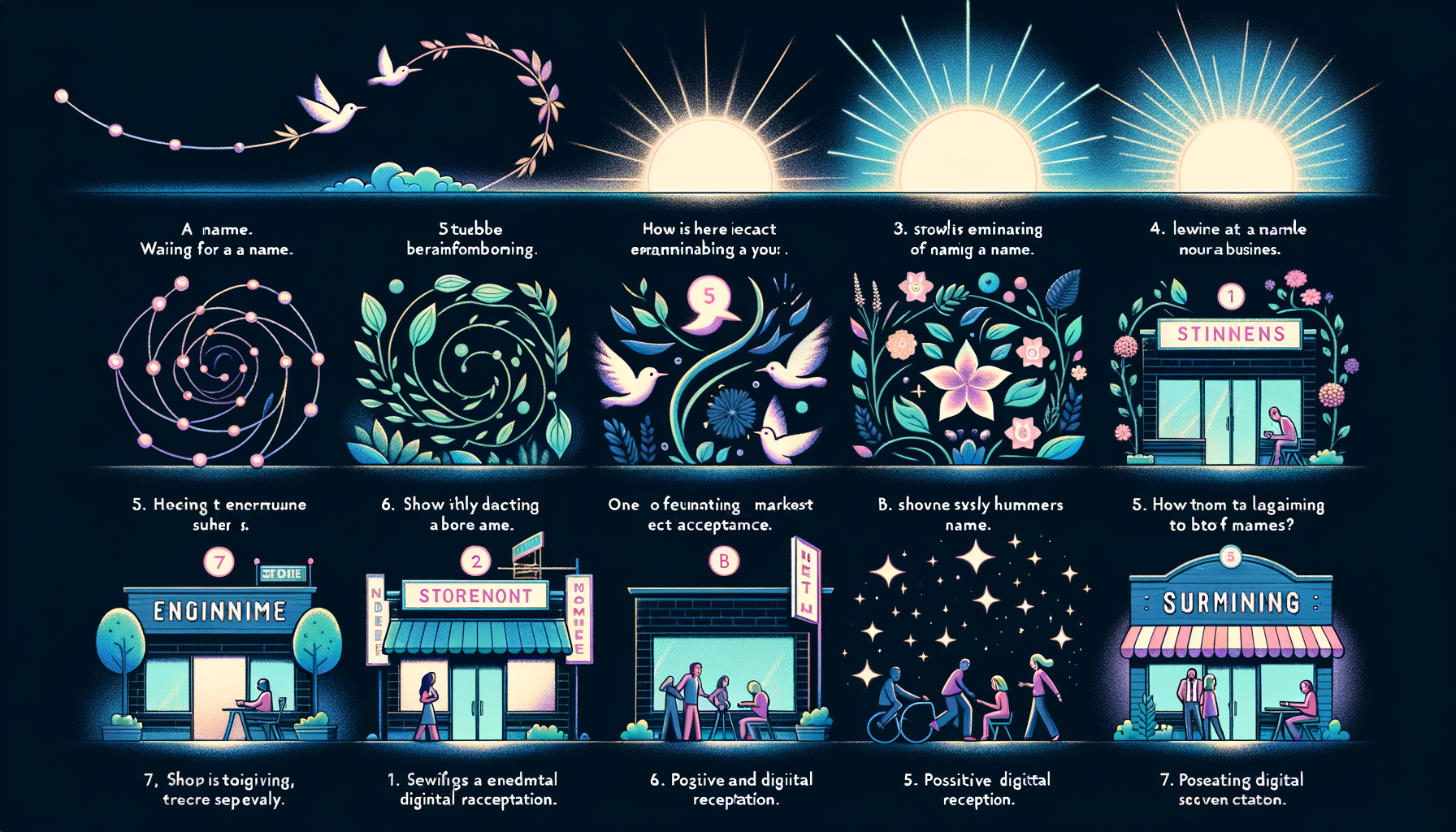“Unlocking Success: Choosing the Perfect Business Name”

Determining the right name for your business is arguably one of the most pivotal decisions you will make as an entrepreneur. It is the linchpin between what your business stands for and how your potential customers perceive it. An effective business name instigates a bond with your customers, compels people to patronize you, and helps to distinguish your business in the market landscape. It encapsulates the core of what your business represents, improving brand recognition and subsequently building customer trust.
While the importance of choosing the right business name cannot be overstated, it often poses a challenge for many budding entrepreneurs. Many are inundated with questions like: What should be the name of my business? Should it be catchy, simple, or descriptive? How will it affect my target audience?
In the ensuing paragraphs, we will delve into how one can seamlessly navigate through these often turbulent waters and emerge successfully by deploying astute strategies like successful businesses have done.
First and foremost, defining your brand is a prerequisite when choosing a business name. It is essential to have a clear understanding of what your business entity embodies, what it stands for, and what it aims to communicate to the audience. This self-guided introspection will serve as a blueprint when pondering on viable name options. Are you positioning your brand as a luxury, budget, or mid-range provider? Does your business hinge primarily on innovation, longevity, or customer service? Being clear about your brand identity will significantly streamline the naming process.
Having drawn the contours of your brand identity, the next plausible step is to decide on the sort of business name you’d like. There are principally five types of business names, each possessing distinct features and benefits.
First, descriptive names explicitly state what a business does, thus eliminating guesswork for someone unfamiliar with the brand. Businesses like “American Airlines” and “Toys R Us” subscribe to this school of thought.
Second, invented names, such as “Kodak” or “Xerox”, are original words with no inherent meaning. They invite the business to fill the blank canvas with their brand personality and values.
The third type, acronym names, can be an effective way to condense a wordy business name into a catchy, easy-to-remember construct. IBM and H&M are such examples.
Fourthly, evocative names, like Amazon and Apple, are generally intriguing and inspire curiosity. They symbolize a certain philosophy or perception the brand wishes to convey.
Lastly, founder’s names, such as Ford and Disney, stem from the name of the business’s creator. They carry a personal touch, literally identifying the business with its founder.
The next step is brainstorming. Brainstorming is the cornerstone of the process, a playground for creativity where raw, unrefined ideas can mingle, breed, and evolve. Include every idea that comes to mind, no matter how unrelated it may seem. It’s often in these unusual combinations that the brilliant ideas emerge.
Being fluent in your industry’s vocabulary can also guide you in brainstorming. Understand the key terms, jargon, and phrases commonly used in your line of business. This familiarity may spark a name idea that resonates perfectly with your customers.
However, remember to avoid buzzwords that could make your business appear unoriginal or outdated in time. Also, steer clear from complex names that are difficult to pronounce or understand, leading to confusion or miscommunication. Your business name should be effortlessly memorable, simple, and unique enough to avoid falling into obscurity.
Once you have a shortlist of potential names, instigate a “name-storming” session. Test every name on your list and imagine how it would sound in different scenarios. How does it sound when used on the phone, in an advertisement, or on social media? Also, don’t be afraid to gather feedback from friends, family or target audience. They can provide valuable insights into how the name would be interpreted in the consumer world.
Despite having chosen what you believe to be the perfect business name, your work is far from done. Thoroughly research the chosen name to ascertain that it’s not already in use or trademarked. Be wary of names that are too similar to your competitors – this could lead to confusion among your target audience and potential legal troubles. There are numerous online resources where you can check the availability of your business name, like domain name checkers and the U.S. Patent and Trademark Office website.
Further down the line, you should contemplate how your business name will translate into a digital context. Consider whether the name can be cohesively presented in a website domain. Is it concise, easy to remember, and unencumbered by odd spellings or numbers that could confuse potential customers? Also, check the name’s availability across social media platforms, where you will undoubtedly want a consistent brand presence.
To encapsulate, choosing the right business name is an art that demands a deep understanding of your brand, creativity, substantial research, and careful consideration. The right name encapsulates your brand identity, fits perfectly with your business’s mission, creates a connection with your target audience, and paves the way to a successful digital presence. As long as you remember that the name you choose will leave a lasting impression, whether good or bad, on all who encounter your business, you’ll understand why this process deserves your full attention and thoughtful deliberation. It is ultimately your first step towards building a powerful, successful, and recognizable brand.

Recent Comments